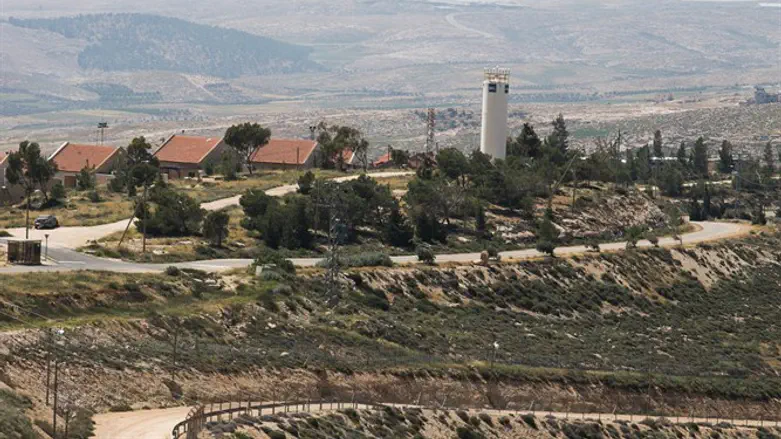
As the Israeli government mulls annexing parts of Judea and Samaria, some Jews fear being forgotten and more isolated than ever, engulfed by a new Palestinian state.
"That would be a nightmare," said Efrat Dahan, who lives in Otniel, a Jewish settlement that lies beyond larger swathes of land likewise earmarked for annexation under a controversial US peace plan.
"We won't be able to leave without a military escort, there will be more bombs, more shooting, stones, Molotov cocktails," added the 37-year old settler as she left a small park with her children.
Israeli Prime Minister Binyamin Netanyahu has vowed to forge ahead with annexing large settlement blocs and the Jordan Valley, in line with the peace proposals unveiled in January by US President Donald Trump.
The plan has been angrily rejected by the Palestinian Authority, which says it was not consulted on proposals it sees as capitulating to Israeli demands.
But a new Israeli government has said it will lay out its strategy to implement the peace plan on July 1.
That has left settlers feeling exposed to a potential backlash against annexation, despite the peace plan pledging "appropriate security protection" for remote settlements.
"We will be very afraid," said Dahan, who believes Palestinian Authority police will do nothing to safeguard her and fellow Otniel residents if a Palestinian state is created as outlined in the US plan.
Unlike some 130 settlements linked by roads long under Israeli military control, their 1,000-strong religious community south of Hebron has access to no such network.
"But we know that God is with us," Dahan said.
While Washington published maps when it unveiled its initiative, Yochai Damari, head of the Har Hebron Regional Council, voiced fears over a "lack of logic" in the proposals.
"Otniel is here," he said, pointing out the settlement on a large map he said reflected the US proposals.
"All that we see in red is the Palestinian state and those are the (Jewish) enclaves in the state," he said.
He said nearly 20 settlement communities would be similarly exposed.
After its victory in the Six Day War, Israel began to build Jewish towns in Judea and Samaria, which had belonged to Jordan but were abandoned in the wake of the war.
Many, particularly in remoter areas and in the city of Hebron, were established by observant Jews. Over the past decade, the Jewish population in Judea and Samaria has grown by 50%, with some 450,000 Jews living alongside 2.5 (some put it at 1.7) million Palestinian Authority Arabs.
"We were sent here by the state of Israel," said Damari, whose parents founded Otniel around 40 years ago.
On Tuesday, he and other settlement leaders met the Israeli Prime Minister to outline their concerns.
Damari says "historic justice" means Israel has a right to Judea and Samaria.
"But we want to check that we will not suffer damages or that we will not be put in danger," he said.
An Israeli-American committee has convened since January to create a more precise plan, but details of any adjustments have not yet been confirmed.
In 2016 an Otniel resident, Dafna Meir, was stabbed to death in her home by a 16-year-old Palestinian Authority terrorist.
Some 58 percent of Israelis think annexation will spark a third intifada, or intense wave of violence by the Arabs, according to a poll published Wednesday by the Israel Democracy Institute.
The Second Intifada, in the early 2000s, included waves of suicide bombings.
But despite such fears, 50 percent of Israelis surveyed said they supported annexation.
In Otniel, businessman Assaf Fassi says he suffered a serious chest wound in a gun attack on the settlement during the Second Intifada that left four people dead.
He said he had invested heavily in building his home, which has fruit trees in the garden.
"I worked really hard to provide for my family's needs, I want to know what will happen," said Fassi. "We don't know if we can build, if we can develop, if my children will be able to live here."
The future of Otniel will likely be determined by Netanyahu's administration, but Washington is also a key player.
Analysts say Israel has just a few months to forge ahead with annexation or risk the plan crumbling if Trump fails to win a second term in November.
David Elhayani, president of the influential settler Yesha Council, told the Haaretz daily that Trump and his aide Jared Kushner only care about "promoting their interests ahead of the upcoming election."
"They are not friends of the state of Israel," he said.